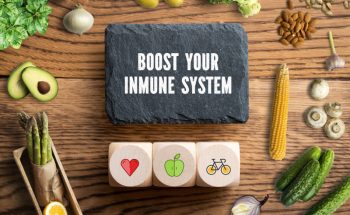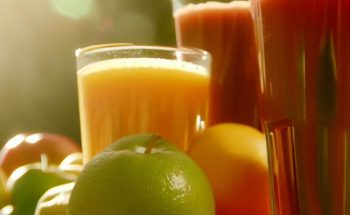Welcome to the ultimate guide to starting a vegan diet! Are you curious about the benefits of a plant-based lifestyle? Are you ready to embark on a journey towards improved health and sustainability? In this comprehensive guide, we will walk you through the essentials of a vegan diet, provide you with valuable tips for transitioning, and share a collection of delicious vegan recipes to kick-start your journey. Whether you’re a newcomer or someone looking to refresh your vegan repertoire, this guide has something for everyone.
What is a Vegan Diet?
Before diving into the practical aspects, let’s clarify what a vegan diet entails. A vegan diet is a lifestyle choice that excludes the consumption of all animal products. This means avoiding not only meat and fish but also dairy, eggs, honey, and other animal-derived ingredients. Vegans base their meals on plant-based foods, including fruits, vegetables, grains, legumes, nuts, and seeds. The core principles behind a vegan diet extend beyond dietary choices and often encompass ethical, environmental, and health considerations.
Health Benefits of a Vegan Diet
The decision to adopt a vegan diet comes with numerous potential health benefits. Research suggests that a well-planned vegan diet can support weight management, reduce the risk of chronic diseases such as heart disease, type 2 diabetes, and certain cancers, and improve overall vitality. By embracing a vegan lifestyle, you can nourish your body with an abundance of essential vitamins, minerals, antioxidants, and dietary fiber while avoiding harmful saturated fats and cholesterol found in animal products.
Getting Started with a Vegan Diet
Transitioning to a vegan diet may seem overwhelming at first, but with the right approach, it can be an exciting and fulfilling journey. Here are some practical tips to help you get started:
Understanding Plant-Based Nutrition
To ensure a balanced vegan diet, it’s crucial to understand plant-based nutrition. While animal products are rich in certain nutrients, vegans can obtain all the necessary vitamins, minerals, and macronutrients from plant sources. Let’s explore some key nutrients and their vegan-friendly sources.
Planning Balanced Vegan Meals
Creating well-rounded vegan meals involves considering different food groups and incorporating a variety of plant-based ingredients. Meal planning can help you ensure you’re meeting your nutritional needs and enjoying a diverse range of flavors and textures. Here are some tips for planning balanced vegan meals:
Vegan Protein Sources
Protein is an essential macronutrient, and there are plenty of plant-based sources available for vegans. Contrary to common misconceptions, it’s entirely possible to meet your protein requirements on a vegan diet.
Vegan Recipe Ideas
Now, let’s delve into the exciting world of vegan cooking! Here, we present a selection of mouth-watering vegan recipes to inspire your culinary adventures. From energizing breakfast options to satisfying main courses and delightful desserts, these recipes will showcase the incredible variety and deliciousness of plant-based cuisine.


Breakfast Recipes
Breakfast is the perfect opportunity to kick-start your day with a nutritious and delicious vegan meal.
Lunch and Dinner Recipes
Lunch and dinner offer ample opportunities to explore the vast array of flavors and textures in plant-based cuisine.
Snack and Dessert Recipes
Who says being vegan means missing out on tasty snacks and indulgent desserts?
Staying Healthy on a Vegan Diet
Maintaining a healthy and balanced vegan diet requires attention to certain nutrients. Let’s address some common concerns and ensure that you’re getting all the essential components for optimal health and vitality.
Key Nutrients to Watch
While a well-planned vegan diet can provide all the necessary nutrients, there are a few key ones that require extra attention.
Overcoming Challenges
Transitioning to a vegan lifestyle can present certain challenges, but with the right mindset and support, they can be overcome.
Conclusion
Congratulations! You’ve reached the end of our ultimate guide to starting a vegan diet. By now, you have a solid foundation of knowledge, practical tips, and a collection of delicious recipes to embark on your vegan journey. Embracing a vegan lifestyle is not only beneficial for your health but also for the planet and the animals we share it with. So, go ahead, explore the world of plant-based nutrition, and enjoy the myriad benefits of a vegan diet.
FAQs (Frequently Asked Questions)
- Is a vegan diet suitable for everyone?
While a vegan diet can provide many health benefits, it may not be suitable for everyone. It’s important to consult with a healthcare professional or registered dietitian to ensure that a vegan diet meets your individual nutritional needs, especially if you have any specific health conditions or dietary restrictions.
- How can I ensure I’m getting enough protein on a vegan diet?
Getting enough protein on a vegan diet is absolutely achievable. Incorporating a variety of plant-based protein sources such as legumes, tofu, tempeh, seitan, quinoa, nuts, and seeds can help meet your protein needs. Additionally, combining different plant foods throughout the day can provide complementary amino acids and enhance protein quality.
- What are some common sources of vegan calcium?
Calcium is essential for maintaining strong bones and teeth. While dairy products are common calcium sources in non-vegan diets, vegans can obtain calcium from plant-based sources such as fortified plant milks, tofu, tempeh, leafy greens (like kale and broccoli), sesame seeds, and almonds. It’s also worth considering a calcium supplement if needed.
- Can I still enjoy eating out while following a vegan diet?
Yes, you can still enjoy eating out as a vegan! Many restaurants now offer vegan options, and some establishments are entirely vegan-friendly. When dining out, check the menu in advance or ask the staff about vegan choices. Additionally, don’t hesitate to make special requests or modifications to accommodate your dietary preferences.
- Are there any potential pitfalls or challenges I should be aware of when transitioning to a vegan lifestyle?
Transitioning to a vegan lifestyle can present a few challenges. It’s essential to ensure you’re getting a balanced diet that provides all the necessary nutrients. Some potential pitfalls include not getting enough vitamin B12, iron, omega-3 fatty acids, or vitamin D. Planning meals, educating yourself about plant-based nutrition, and considering appropriate supplementation can help overcome these challenges and ensure a healthy vegan lifestyle.





